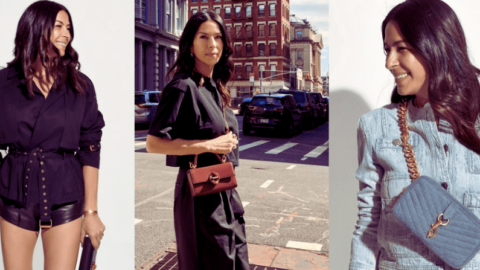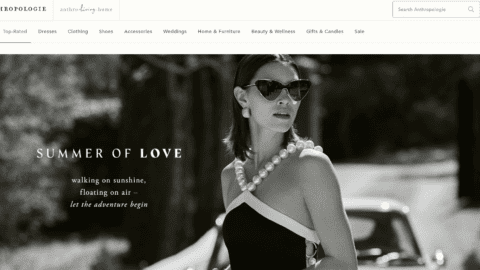At the turn of a new year with retail sales showing signs of life, key consumer trends are shifting. With a strong focus on value and authenticity, design forecaster Valerie Jacobs insists that retailers should focus on catering to the ever-changing consumption model in order to optimize the customer experience.
Jacobs, who presented the session “Reinventing Retail” at the recent In-Store Marketing Expo, believes the recent downturn has accelerated a shift in consumer attitudes and values, towards authenticity. Retail TouchPoints had the chance to catch up with Jacobs to hear more about her theories on the trends in the retail landscape and how retailers can adapt to these shifts.
Retail TouchPoints: One of the primary factors involved in the customer experience is value. How will shifting perceptions of value change consumers in the short and long term?
Valerie Jacobs: The economic factors influencing consumers are here to stay. One of the most pervasive socio-cultural movements currently driving consumer behavior is the trend we’ve dubbed, “Simplistic Slowdown.” After years of tracking this trend, we’ve identified the forces behind Simplistic Slowdown and are articulating these discoveries in provocative and powerful ways to help retailers and consumer-packaged goods companies develop trend-forward brands, products and packaging that resonate with consumers.
The dramatic downturn of the global economy has accelerated a shift in consumer attitudes and values, towards authenticity. Exhausted from this status race, fatigued with techno-addiction and wary of chaos and corruption, we take a collective sigh and begin our evolution as consumers. The chapter of conspicuous consumption has concluded. Now, we seek honesty rather than “reality” and transparency, constructing complex narratives to fulfill our need for meaning. Importance is no longer placed on consumption of things. More important is the effect that time has on our things. The most valuable luxury is that which cannot be easily replicated, forwarded or downloaded. We create collections with connections that craft the tale of our personal anthology.
RTP: Could a more innovative retail model better serve these new consumer desires?
Jacobs: The “consumer” is no longer the most appropriate terminology to use when referring to the person who buys goods or services. Better-suited descriptors for the evolving consumption model are “Prosumer,” “Transumer” and “Connoisumers.” “Prosumers” are the combination of producer and consumer that subscribe to the collaborative model of Web 2.0. “Transumers” are people driven by experiences rather than possessions and ownership. These are self-actualized human beings that define themselves by how they feel, not what they buy. This term can also apply to those people who actively transfer ownership of items and use only what they need. “Connoisumers” are well-studied shoppers that have been on the journey of educating their tastes who employ their expertise to evaluate worth and value.
What is the new value or worth equation? Less choice, but more quality, less hyper-churn disposable SKUs and more meaningful product innovation. We will also see less buyer anxiety, more choicefulness; less over-consumption, more savoring happiness; less purchase, more rental, shared and community-owned resources/products; less democratization of luxury, more one-of-a-kind, rare finds, and hard to replicate items and experiences. It is in these changes that one can see the evolution from value to worth.
RTP: What are some of the overall opportunities to optimize the customer experience in retail?
Jacobs: Developments in recent years have advanced to a higher order of emotional branding with the pursuit of “experience design,” progressing the role and purpose of brands, provoking questions on why and how we design them. The future holds even more potential for the role of designers and brands. We are entering a “new design space” – a paradigm shift that will revolutionize the role and purpose of brands.
This new design space is one where we will co-evolve brands with people instead of designing brands for consumers. As Simon Clift, CMO of Unilever recently noted in Advertising Age, “Brands aren’t simply brands anymore. They are the center of a maelstrom of social and political dialogue made possible by digital media.” He warned that marketers who do not recognize that – and adapt their marketing – are in grave peril.
RTP: What are some of the retail trends you see being impacted by the changing economic climate? How can retailers adapt?
Jacobs: We’ll continue to see numerous emerging patterns associated with Simplistic Slowdown as we journey through the next five years such as retailer consolidation; heightening of private label; declining speed of pipeline innovation; increased focus on transactional spaces (and designing them); the art of retail; garage start-ups and maker-culture merging with locality; multifunctional products; the Idea Economy; more somber and sober state ofemotions; deep thinking; switch to Lo-Fi; redefining tempo; the Economy of Happiness; embracing our humanity; claiming our own space; and mindful meditation.
RTP: Are there any case study examples you can share?
Jacobs: Crushpad is a service designed for nontraditional winemakers who work hand-in-hand with Crushpad staff and winemaking consultants to define and create their own wine. Customers consult with these experts to make thirty different decisions about their customized wine. The customer can monitor the steps they do not participate in via a streaming web cam (from the warehouse and cellar). Crushpad also works with the customer to design their own wine label and then produces the customer’s own “cult wine” at a cost of $ 19-36 per bottle. Crushpad’s online presence, www.crushpadwine.com, functions as a virtual community and transactional space that provides wine creators with a platform to sell their wine and to see/share ideas with other wine creators. The site also functions as a tutorial for how to launch your own commercial brand with support services like compliance and marketing.
Insights gained from Crushpad’s platform tells us investing in educating the customer and creating a more intimate environment where they are a crucial part of the process leads to greater appreciation and loyalty.
Valerie Jacobs, Group Director, LPK Trends, is a seasoned design forecaster focusing on the development of trend analysis for LPK client brands. Valerie’s strategic approach melds together research, analysis and translation of trend data into actionable strategies as they relate to design, for consumer brand initiatives. With 15+ years in the marketing communications and design fields, Valerie is also a professor at the University of Cincinnati College of Design, Architecture, Art and Planning. She has been a guest lectures for the In-Store Marketing Institute, Design Management Institute and the Industrial Designers Society of America. She is often called upon for her expert point of view by The New York Times and has authored articles for a variety of trade journals.












